Роберт Бюттнер - Orphan's Journey
Здесь есть возможность читать онлайн «Роберт Бюттнер - Orphan's Journey» весь текст электронной книги совершенно бесплатно (целиком полную версию без сокращений). В некоторых случаях можно слушать аудио, скачать через торрент в формате fb2 и присутствует краткое содержание. Жанр: Боевая фантастика, на английском языке. Описание произведения, (предисловие) а так же отзывы посетителей доступны на портале библиотеки ЛибКат.
- Название:Orphan's Journey
- Автор:
- Жанр:
- Год:неизвестен
- ISBN:нет данных
- Рейтинг книги:3 / 5. Голосов: 1
-
Избранное:Добавить в избранное
- Отзывы:
-
Ваша оценка:
- 60
- 1
- 2
- 3
- 4
- 5
Orphan's Journey: краткое содержание, описание и аннотация
Предлагаем к чтению аннотацию, описание, краткое содержание или предисловие (зависит от того, что написал сам автор книги «Orphan's Journey»). Если вы не нашли необходимую информацию о книге — напишите в комментариях, мы постараемся отыскать её.
Orphan's Journey — читать онлайн бесплатно полную книгу (весь текст) целиком
Ниже представлен текст книги, разбитый по страницам. Система сохранения места последней прочитанной страницы, позволяет с удобством читать онлайн бесплатно книгу «Orphan's Journey», без необходимости каждый раз заново искать на чём Вы остановились. Поставьте закладку, и сможете в любой момент перейти на страницу, на которой закончили чтение.
Интервал:
Закладка:
The sled spent its momentum, so I hung momentarily in the sky, like a holotoon coyote.
The ’Puter slurred its last words. “Recommended maximum altitude two feet. Current altitude two thousand six hundred twenty feet.”
Silence turned to wind howl, louder and louder as I fell, until I heard nothing. Just as well. I screamed all the way down.
THREE
FOUR MONTHS LATER, I sat in my private room at New Bethesda Naval Hospital, while my Rehab chair flexed the hip and knee joints at both ends of my repaired femurs, and a nebulizing tube circulated antibiotic mist through my regrown lung. Eternad armor kept the fall in Tibet from killing me, Ord kept the Chinese infantry from killing me, and the State Department, of all people, sprung me from China before socialized medicine could kill me.
Things were looking up. Until my therapist decided I was well enough to receive visitors.
My second visitor was Lieutenant General Nathan M. Cobb. General Cobb was my commanding officer. For the second time in my career.
The first time had been fourteen years ago, during the Battle of Ganymede. Then, a Slug round had left him naturally blind, and had left me in temporary charge of saving the human race.
The last four years, tied by his wounds to a Pentagon desk, Nat Cobb dispatched me, and others under him at Army Advisory Command, to romantic foreign climes, all of which smelled like urine.
There we trained partisans — and regular troops — aligned with American interest. Meaning we fomented or unfomented revolutions, coups d’état, or insurrections, wherever the United States deemed justice needed serving. Proving that justice was blind, though Nat Cobb now read faster with his Virtulenses than a naturally sighted English major.
Before General Cobb arrived, my first visitor was a Quartermaster Colonel. Thin and bald, he wore a chestful of non-combat ribbons. He inquired after my health, then commented on the weather.
I said, “What’s up, Colonel?”
He sat down, flicked on a lap display, and kept his eyes on it. “General, you are Commander of the Fourth Military Advisory Team (Detached).”
I nodded. MAT(D)4 was actually Ord and me, but it sounded like the Army of the Potomac.
“Sir, before you enplaned en route to Nepal—”
“Tibet.” I pointed at my slowly flexing legs. “All this happened after the Zoomies pushed us out over Tibet.”
“Tibet is part of the People’s Republic of China, Sir. You weren’t there.”
I rolled my eyes. “Whatever. I don’t suppose you know what happened to a Sherpa named Tensing, then?”
“I have no information on Chinese Nationals, Sir.” The Colonel whispered a recall code and a document flashed up in the air between us.
“Tensing thought he was a Tibetan, not a Chinese National.”
“At all events, before you enplaned en route to — shall we say, your previous duty station — as MAT(D)4’s Commanding Officer, you thumbed for the standard equipment load.” He pointed at a scrolling form.
“Sure. That’s my name under my thumbprint.”
“As you know, what a Commander can’t sign back in, he reimburses the Army for. Normal wear and tear excepted.”
“So?”
The Colonel squirmed in his chair, then red-clicked a serial-numbered document line. “The Inspector General’s office has brought to our attention that a ground-effect attack transport signed out to you may have suffered abnormal wear.”
I tried to shrug. “If you call cliff-diving abnormal.”
He scowled.
I said, “It was a combat loss.”
“You were non-combatants in a non-combat zone.”
My eyes bulged. “Me? Pay? You know what GATrs cost?”
“To the dime.”
My monitor beeps sped up, as I pointed at the IV tube curling from my forearm. “You want my blood? Line up. The test orderly already sucked today’s pint.”
The Colonel switched off his audio recorder. “Take it easy, General. Show’s over.” He leaned forward, elbows on knees. “I had to give you the lecture. Now listen up. Sir.” He was twenty years my senior, but I wore stars. “As of now, you’re thumbed out for that GATr.”
“I never denied that.”
“It won’t officially show up missing until you thumb MAT(D)4’s load back in, and the inventory turns up light.”
“So?”
“Where MAT(D)4 goes, that equipment goes. As long as MAT(D)4 is field-deployed, Quartermaster never inventories. Just keep MAT(D)4 in the field for a year and a half.”
I rolled my eyes. “Stay of execution?”
“Better. The first GATr Mark IIs are already coming off the production lines. In eighteen months, the Mark I you wrecked will be obsolete.” He waved a hand, and his display vanished like a magician’s rabbit. “Once the GATr Mark I is declared obsolete, we’ll write its book value down, and declare ’em all surplus.”
“That’s stupid. They’ll still be top-drawer weapons.”
“Of course. But Military Advisory Command is authorized to resell surplus abroad, cheap. India will buy anything, if it’s cheap enough. India badly wants Tibet as its Himalayan buffer from China. So India will buy, then quietly resell, the GATrs, at India’s cost. Which is?”
“Cheap?”
He smiled. “Who to? To those Tibetan rebels you’re so concerned about. Result? Your rebels will get top-drawer weapons. Coincidentally, your bill for that wrecked GATr will drop to less than a week’s pay.”
I cocked my head. “Why are you doing me favors?”
“I’ve never been shot at. I respect soldiers who have. The Army’s a big family, General.”
“We are a family. Sorry I got pissy.”
He pointed at my rebuilt legs, and smiled. “I’d get pissy too.”
I smiled back. “I respect what you put up with, too, Colonel. Paper pushing’s the hell of command.”
He stood with his display, then raised his eyebrows. “Really, Sir? I’d have thought the hell of command was ordering your family to die.”
An hour later, my therapist led General Cobb in. He sat in a padded turquoise hospital chair across from me, Class-A’s crisp across his thin shoulders, chin high, lenses humming as they echo-located. “You look good, son.”
After four months on my butt, I looked like unbaked bread.
“Spoken like a blind man. Sir.”
Nat Cobb chuckled. “Both of us are high-mileage units now, Jason.” His smile faded. “Leave us, please, Lieutenant.”
General Cobb spoke to the room, but my therapist nodded, fluffed my pillows, and warned me to avoid sudden movements and emotional upset.
She stepped out and pulled the door shut behind her.
Nat Cobb adjusted his lenses.
Then he sighed. “What were you thinking?”
“Sir?”
“Are we at war with China?”
“Americans don’t know how China raped Tibet for the last century. Or we might be.”
The general turned his head to the ceiling. “Americans know Greater China is two billion people. People who build 76 percent of our cars, and 94 percent of our holosets! Did Congress delegate its war powers to you?”
I swallowed. “I guess you’re not here to pin a Purple Heart on my pillow.”
“Your pillow?” He stood, turned, and stuck out his butt, bony as ever under his uniform trousers. “Last six months, the Foreign Relations Committee’s chewed this ass nine times. It’s me should be sitting on a pillow!”
I gulped. Nat Cobb was a plain-spoken GI’s general. I’d never heard him raise his voice to a subordinate before.
“The Chinese shot first, Sir. Ask Ord.” I leaned forward. “I heard he—”
“He’s fine. Except for the case of Dumbass he caught from you. He told me you provoked the Chinese.”
I studied a bandaged finger. “Sort of.”
“I didn’t pair you with the best Non-Com in the Army so he could dig you out of some hole I can’t even pronounce.”
Читать дальшеИнтервал:
Закладка:
Похожие книги на «Orphan's Journey»
Представляем Вашему вниманию похожие книги на «Orphan's Journey» списком для выбора. Мы отобрали схожую по названию и смыслу литературу в надежде предоставить читателям больше вариантов отыскать новые, интересные, ещё непрочитанные произведения.
Обсуждение, отзывы о книге «Orphan's Journey» и просто собственные мнения читателей. Оставьте ваши комментарии, напишите, что Вы думаете о произведении, его смысле или главных героях. Укажите что конкретно понравилось, а что нет, и почему Вы так считаете.

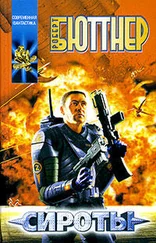

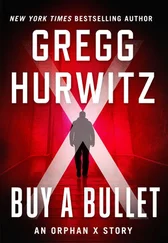
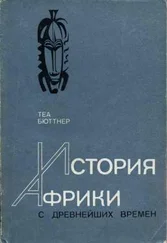

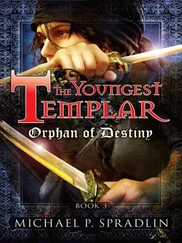
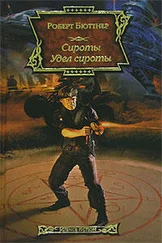
![Дэн Бюттнер - Где живет счастье [Правила жизни самых счастливых людей планеты] [litres]](/books/395574/den-byuttner-gde-zhivet-schaste-pravila-zhizni-samyh-thumb.webp)


